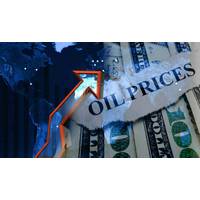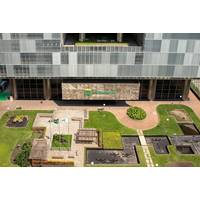Beijing: New Industry Limits will cut Smog
China's overgrown and smog-hit capital Beijing has passed new rules banning the expansion of polluting and resource-intensive industries, the local government said on Friday.
In a list of restrictions published on its website (www.beijing.gov.cn), the municipal government said it would ban the further expansion of a wide range of industries, including food processing, textiles, construction materials, papermaking, chemicals and oil refining.
It said in an accompanying statement that the list had been drawn up to serve the capital's plans to restructure its economy and promote integrated development with the neighbouring regions of Hebei and Tianjin.
Beijing has been under heavy pressure to end its obsession with industrial growth, which has not only left the city choking with smog, but also deprived poverty-stricken surrounding regions of the opportunity to improve their economies.
"Constantly-developing Beijing is now facing a series of problems, including overpopulation, congestion, water shortages and air pollution - these deep-rooted problems are related to the fact that the city has too many functions, and its economy is too big," the statement said.
The city's economy grew 6.5 times from 1998 to 2012, researchers have estimated, while its population grew by two thirds, energy consumption doubled and the number of vehicles on its road tripled over the period.
Beijing has already been moving hundreds of industrial enterprises to Hebei to ease pollution and congestion.
It has also started closing down coal-fired power plants with the aim of cutting average daily air pollution by a third by 2017.
China is considering plans to create a "super-region" around Beijing by relocating industries, improving transportation, breaking down administrative barriers and setting unified industry standards.
It is also planning to relocate some non-essential government functions to Hebei and is studying a proposal to relocate as many as 5 million people outside of the city, according to local media reports.
The new policy will also impose restrictions on new real estate projects, including bans on the construction of large-scale hotels, schools, office buildings and hospitals in "core districts", the city government said.
Beijing's average readings of tiny airborne particles that are hazardous to health, known as PM2.5, reached 91.6 micrograms per cubic metre in the first half of 2014, down 11.2 percent year on year, data from the Ministry of Environmental Protection showed.
However, seven of the 10 most polluted cities in China over the period were in neighbouring Hebei.
Reporting by David Stanway







